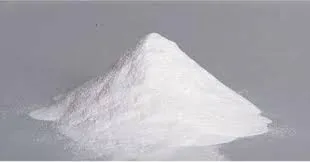
វិច្ឆិកា . 05, 2024 05:05 Back to list
hydroxyethyl cellulose powder
Hydroxyethyl Cellulose Powder An Overview
Hydroxyethyl cellulose (HEC) powder is a water-soluble polymer derived from cellulose, a natural polysaccharide obtained from plant cell walls. With its unique properties, HEC is widely utilized across various industries, including pharmaceuticals, cosmetics, food, and construction. This article explores the characteristics, applications, and benefits of hydroxyethyl cellulose powder.
Chemical Structure and Properties
HEC is synthesized by the etherification of cellulose with ethylene oxide, resulting in a highly functional polymer that exhibits excellent water retention and viscosity-modifying properties. It is available in various molecular weights and degrees of substitution, allowing for customization based on specific application needs. The resulting powder is odorless, tasteless, and non-toxic, making it suitable for a wide array of uses.
In aqueous solutions, HEC forms a gel-like consistency, providing thickening, stabilizing, and emulsifying effects. Its high viscosity at low concentrations makes it an efficient thickener, whereas its rheological properties can be adjusted to meet the demands of different formulations. Furthermore, HEC is known for its pseudoplastic behavior, meaning the viscosity decreases under shear stress, which is advantageous in applications requiring easy application or processing.
Applications of Hydroxyethyl Cellulose Powder
1. Pharmaceuticals In the pharmaceutical industry, HEC serves as a binder, emulsifier, and thickening agent in various formulations, including tablets, suspensions, and creams. Its ability to modify viscosity ensures the right texture and stability of drug formulations, enhancing bioavailability and improving patient compliance.
hydroxyethyl cellulose powder

2. Cosmetics and Personal Care HEC is widely used in cosmetic and personal care products, such as lotions, creams, shampoos, and gels. It acts as a thickener and stabilizer, improving the consistency and spreadability of these products. Moreover, its film-forming ability provides a smooth texture and enhances moisture retention in skincare formulations.
3. Food In the food industry, hydroxyethyl cellulose is used as a thickening agent and fat replacer, contributing to the texture and mouthfeel of products. It is commonly found in sauces, dressings, and processed foods, where it helps maintain product stability and consistency while reducing calorie content.
4. Construction HEC is also utilized in construction materials, such as mortars and tile adhesives. It enhances workability, water retention, and adhesion properties, ensuring better application and durability of construction products.
Benefits of Hydroxyethyl Cellulose Powder
The use of HEC powder offers numerous advantages, including its excellent stability, compatibility with various ingredients, and safety profile. HEC is biodegradable and derived from renewable resources, aligning with the growing demand for sustainable and environmentally friendly materials. Its versatility across various industries further underscores its significance in modern formulations.
In conclusion, hydroxyethyl cellulose powder is a valuable and multifaceted ingredient that plays a crucial role in numerous applications. Its unique properties and adaptability make it an essential component in pharmaceuticals, cosmetics, food, and construction, contributing to innovations and improvements in product formulations. As industries continue to seek sustainable and effective solutions, HEC's role is likely to expand, paving the way for new advancements and applications.
-
The Widespread Application of Redispersible Powder in Construction and Building Materials
NewsMay.16,2025
-
The Widespread Application of Hpmc in the Detergent Industry
NewsMay.16,2025
-
The Main Applications of Hydroxyethyl Cellulose in Paints and Coatings
NewsMay.16,2025
-
Mortar Bonding Agent: the Key to Enhancing the Adhesion Between New and Old Mortar Layers and Between Mortar and Different Substrates
NewsMay.16,2025
-
HPMC: Application as a thickener and excipient
NewsMay.16,2025
-
Hec Cellulose Cellulose: Multi functional dispersants and high-efficiency thickeners
NewsMay.16,2025







